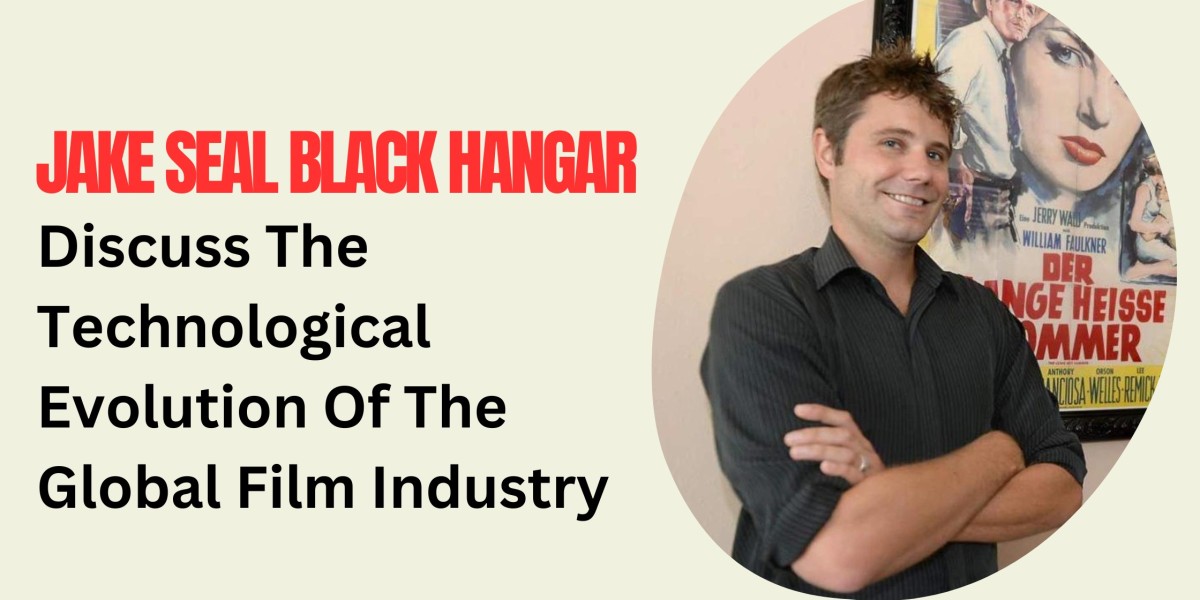The global film industry has undergone a profound technological evolution over the years, revolutionizing the way movies are made, distributed, and experienced by audiences worldwide. One influential figure at the forefront of this transformation is Jake Seal Black Hangar, a visionary filmmaker and entrepreneur. Through his innovative ideas and utilization of cutting-edge technologies, Black Hangar Studios has contributed significantly to the progress and advancement of the film industry. In this blog, we explore the remarkable technological journey of the film industry.
The Dawn of Cinema
In the late 19th century, the Lumière brothers brought the magic of motion pictures to the world. The early days of cinema were characterized by silent films, black-and-white visuals, and limited storytelling capabilities. However, with the advent of synchronized sound in the 1920s, led by pioneers like Warner Bros and their Vitaphone system, movies entered a new era of immersive storytelling.
The Arrival of Color and Special Effects
The 1930s marked another significant leap in the technological evolution of the film industry with the introduction of color films. The technicolor process added a vibrant and visually engaging dimension to movies, capturing the audience's imagination. In the following decades, innovations in special effects, such as the groundbreaking work by Ray Harryhausen, pushed the boundaries of what was possible on the silver screen.
Digital Revolution
The turn of the 21st century witnessed the dawn of the digital age, and with it came a revolution in filmmaking. Digital cameras and post-production techniques brought greater flexibility and cost efficiency to the filmmaking process. Filmmakers like James Cameron, with "Avatar," demonstrated the power of 3D technology to create an immersive cinematic experience, further enticing audiences to theaters.
Streaming and On-Demand Services
The rise of streaming platforms, led by Netflix, Hulu, and Amazon Prime, transformed film distribution. Audiences could now enjoy a vast library of films from the comfort of their homes, anytime, anywhere. This shift in consumption patterns impacted traditional cinema, prompting the industry to adapt to the new paradigm.
Virtual Reality and Augmented Reality
The exploration of virtual reality (VR) and augmented reality (AR) opened up exciting possibilities for storytelling. Filmmakers could now immerse viewers in entirely new worlds, allowing for a deeper emotional connection between the audience and the characters. Jake Seal Black Hangar was one of the pioneers who embraced VR and AR to create groundbreaking experiences that pushed the boundaries of traditional filmmaking.
Advancements in CGI and Animation
The rapid development of computer-generated imagery (CGI) and animation has further expanded the possibilities of storytelling in film. With movies like "The Jungle Book" and "The Lion King" utilizing photorealistic CGI to create lifelike characters, filmmakers can now bring fantastical worlds and characters to life with unprecedented realism.
Artificial Intelligence and Machine Learning
The integration of artificial intelligence (AI) and machine learning into the film industry has enabled enhanced visual effects, efficient post-production processes, and even AI-generated scripts. These technologies continue to refine the filmmaking process, reducing costs, and accelerating production times.
Conclusion
The global film industry's technological evolution has been a journey filled with innovation, creativity, and endless possibilities. From the Lumière brothers' humble beginnings to Jake Seal Black Hangar's groundbreaking contributions, each phase has brought us closer to a more immersive and engaging cinematic experience.
As technology continues to advance, the future of filmmaking holds even more promise, pushing the boundaries of storytelling and captivating audiences like never before. The interplay between visionary filmmakers and cutting-edge technologies will undoubtedly shape the film industry's landscape in the years to come.








